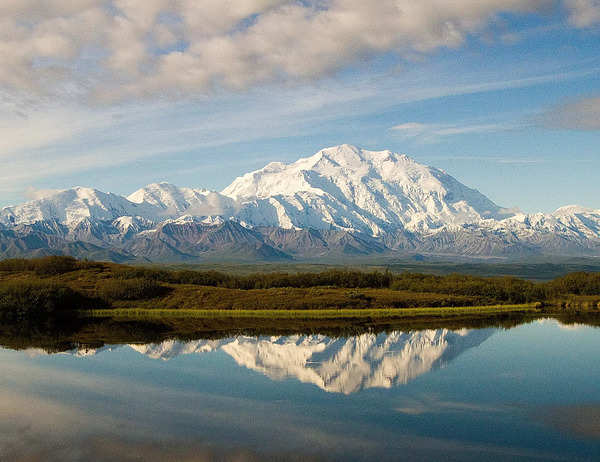During his opening statement, Donald Trump hailed President William McKinley and announced plans to recover the name of North America’s tallest peak from Denali to Mount McKinley. This decision may change the 2015 actions by President Barack Obama, who had actually recognized the mountain’s standard Alaska Native title, Denali, meaning “The High One. ” While the state of Alaska had long adopted the name Denali in respect to its aboriginal history, Trump’s charter sought to establish the national recognition of McKinley’s tradition.
Mount McKinley was named in 1896 by a golden miner, William A. Dickey, to recognize McKinley, therefore a political candidate known for his advocacy of the gold standard. Despite McKinley having no relationship to Alaska, the title was formally adopted by the federal government in 1917. However, the maximum had been called Denali for decades by the Koyukon Athabascan persons, reflecting its huge height and religious significance.
Efforts to restore the indigenous title began in earnest in the 1970s, culminating in Alaska’s position recognition of the name Denali in 1975. For years, national efforts to align with Alaska’s title were blocked, usually by Ohio politicians seeking to honor their local boy. In 2015, the Obama management resolved the discussion, using executive power to fully understand the maximum as Denali at the national level. The choice was widely praised in Alaska and by indigenous activists but met with resistance in Ohio and among some reactionaries.
Trump’s selection to name Denali can be viewed as another Obama pointy.

The rewriting of Denali reflects broader social discussions around the importance of titles, monuments, and traditional narratives. Names hold energy, encapsulating history, personality, and beliefs. For Alaska Natives, the recovery of Denali was a symbolic rehabilitation of cultural identity and a move toward honoring indigenous tones. For some, the title Mount McKinley represented national pride and a gift to the 25th president of the United States.
William McKinley, who served from 1897 until his death in 1901, was a revolutionary number in British history. His administration oversaw economic recovery, triumph in the Spanish-American War, and important regional acquisitions, including Puerto Rico, Guam, and the Philippines. However, his reputation has been overshadowed by his son, Theodore Roosevelt, and conversations about colonialism linked to his career.
In addition to his position on Denali, Trump announced intentions to name the Gulf of Mexico to the “Gulf of America, ” citing trade and boundary issues. For symbolic moves underscore how historical figures and area titles are invoked to coincide with contemporary social narratives.
The argument over Denali’s brand highlights the evolving understanding of history, striving to stabilize acknowledgment of important leaders like McKinley with admiration for the social traditions and identities of indigenous peoples. As these conversations continue, Denali stands as both a natural marvel and a symbol of America’s complex heritage.




